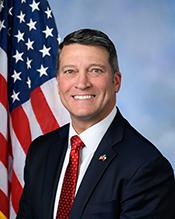0
0
0
NPR and PBS Act
12/15/2023, 3:55 PM
Summary of Bill HR 1632
Bill 118 HR 1632, also known as the NPR and PBS Act, is a piece of legislation introduced in the US Congress that aims to provide funding and support for National Public Radio (NPR) and the Public Broadcasting Service (PBS). The bill seeks to ensure that these public broadcasting entities have the resources they need to continue providing high-quality, educational programming to the American public.
The NPR and PBS Act proposes to allocate federal funding to NPR and PBS, which are both non-profit organizations that rely on a combination of government funding, corporate sponsorships, and listener/viewer contributions to operate. The bill aims to protect the independence and integrity of NPR and PBS by ensuring that they have stable funding sources that are not subject to political influence.
Additionally, the NPR and PBS Act includes provisions to increase transparency and accountability within NPR and PBS, requiring them to report on their programming decisions and financial expenditures. The bill also calls for regular audits of NPR and PBS to ensure that they are using taxpayer dollars efficiently and effectively. Overall, the NPR and PBS Act seeks to support and strengthen public broadcasting in the United States, recognizing the important role that NPR and PBS play in providing unbiased, informative, and educational content to the American public.
The NPR and PBS Act proposes to allocate federal funding to NPR and PBS, which are both non-profit organizations that rely on a combination of government funding, corporate sponsorships, and listener/viewer contributions to operate. The bill aims to protect the independence and integrity of NPR and PBS by ensuring that they have stable funding sources that are not subject to political influence.
Additionally, the NPR and PBS Act includes provisions to increase transparency and accountability within NPR and PBS, requiring them to report on their programming decisions and financial expenditures. The bill also calls for regular audits of NPR and PBS to ensure that they are using taxpayer dollars efficiently and effectively. Overall, the NPR and PBS Act seeks to support and strengthen public broadcasting in the United States, recognizing the important role that NPR and PBS play in providing unbiased, informative, and educational content to the American public.
Congressional Summary of HR 1632
No Partisan Radio and Partisan Broadcasting Services Act or the NPR and PBS Act
This bill prohibits federal funding of National Public Radio (NPR) and the Public Broadcasting Service (PBS), including by prohibiting the use of federal funds received by a public broadcast station to pay dues to or purchase programming from NPR or PBS.
Read the Full Bill
Current Status of Bill HR 1632
Bill HR 1632 is currently in the status of Bill Introduced since March 17, 2023. Bill HR 1632 was introduced during Congress 118 and was introduced to the House on March 17, 2023. Bill HR 1632's most recent activity was Referred to the Subcommittee on Communications and Technology. as of March 24, 2023
Bipartisan Support of Bill HR 1632
Total Number of Sponsors
1Democrat Sponsors
0Republican Sponsors
1Unaffiliated Sponsors
0Total Number of Cosponsors
0Democrat Cosponsors
0Republican Cosponsors
0Unaffiliated Cosponsors
0Policy Area and Potential Impact of Bill HR 1632
Primary Policy Focus
Science, Technology, CommunicationsAlternate Title(s) of Bill HR 1632
NPR and PBS Act
NPR and PBS Act
No Partisan Radio and Partisan Broadcasting Services Act
To eliminate taxpayer funding for the partisan broadcasting outlets known as National Public Radio and the Public Broadcasting Service, and for other purposes.
Comments
Sponsors and Cosponsors of HR 1632
Latest Bills
Providing amounts for the expenses of the Committee on Ethics in the One Hundred Nineteenth Congress.
Bill HRES 131December 12, 2025
Providing for congressional disapproval under chapter 8 of title 5, United States Code, of the rule submitted by the Bureau of Land Management relating to "Central Yukon Record of Decision and Approved Resource Management Plan".
Bill HJRES 106December 12, 2025
Expressing the sense of the House of Representatives in condemning the Government of the People's Republic of China for its harassment and efforts to intimidate American citizens and other individuals on United States soil with the goal of suppressing speech and narratives the People's Republic of China finds unwelcome.
Bill HRES 130December 12, 2025
Providing for congressional disapproval under chapter 8 of title 5, United States Code, of the rule submitted by the Bureau of Land Management relating to "North Dakota Field Office Record of Decision and Approved Resource Management Plan".
Bill HJRES 105December 12, 2025
Providing for congressional disapproval under chapter 8 of title 5, United States Code, of the rule submitted by the Bureau of Land Management relating to "Miles City Field Office Record of Decision and Approved Resource Management Plan Amendment".
Bill HJRES 104December 12, 2025
Providing amounts for the expenses of the Select Committee on the Strategic Competition Between the United States and the Chinese Communist Party in the One Hundred Nineteenth Congress.
Bill HRES 104December 12, 2025
Critical Access for Veterans Care Act
Bill S 1868December 12, 2025
OATH Act of 2025
Bill S 1665December 12, 2025
A bill to extend the authority for modifications to the Second Division Memorial in the District of Columbia.
Bill S 1353December 12, 2025
Saving Our Veterans Lives Act of 2025
Bill S 926December 12, 2025
